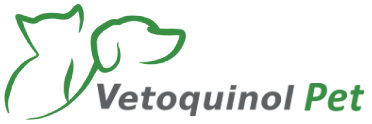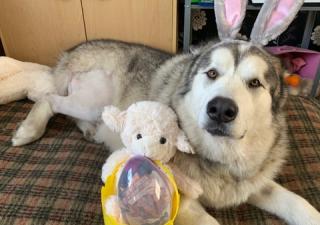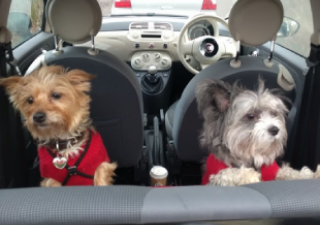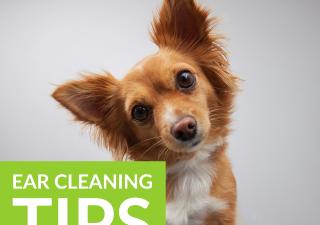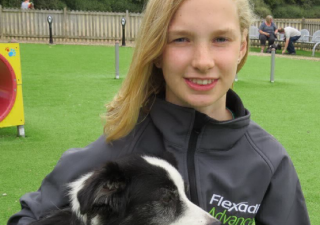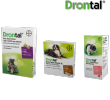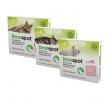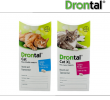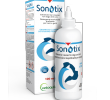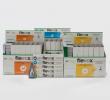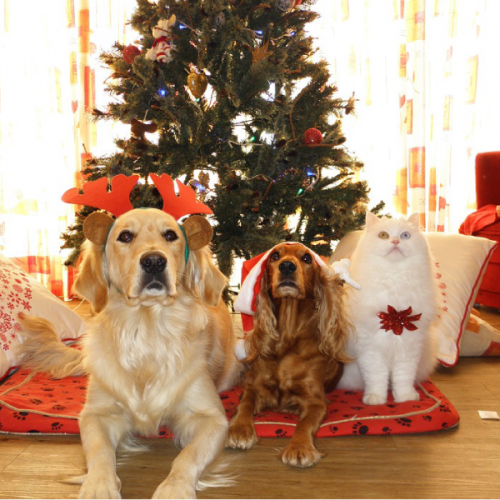
Pet safety this Christmas
Back to overviewChristmas is an exciting time for us all, and many of us will buy gifts and treats for our furry friends. However, there are definitely some treats to be avoided in order to keep our pets safe this Christmas.
Chocolate - The number one food to avoid this Christmas for both dogs and cats is chocolate – in any form. It contains a stimulant called The obromine which is highly toxic, the darker the chocolate (higher percentage of cocoa) the more theobromine will be present.
The effects of theobromine poisoning can be seen anywhere from 4-24hrs after eating and can affect the heart (causing irregular rhythms), the kidneys and the central nervous system. In serious cases it can cause seizures and death.
There is no antidote for theobromine or chocolate poisoning but prompt treatment by your vet can make all the difference. The quickest and most efficient way of getting any eaten chocolate out of your pets’ stomach is by making them vomit – this is something which should only ever be carried out by your vet using a type of drug called an emetic. Never attempt to make your pet vomit by giving them anything at home as this could pose a far more serious risk and make matters worse.
If your pet has managed to eat any chocolate, then contact your vet straight away for advice and possible treatment. The good news is that if treated promptly, your pet stands a very good chance of being absolutely fine!
Alcohol - is considerably more toxic to our pets than to us, even in small volumes. It can cause vomiting, diarrhoea and incoordination. In more serious cases it can cause breathing difficulties, liver failure, brain damage, coma and death. So keep any alcohol well out of reach of your pets this Christmas.
Grapes and Raisins – The active toxin present in grapes and raisins is not fully understood and whilst one pet may be unaffected by eating multiple grapes or raisins, another pet could suffer from acute kidney failure from eating as little as one grape or raisin. These are particularly plentiful during the Christmas period in the form of mince pies and Christmas pudding/cakes. The difficulty is not knowing which pets might be affected to a more serious degree, therefore the best thing is to avoid your pets having access to grapes or raisins at any time.
Onion – Raw, cooked or in any variant such as onion powder all contains a substance called thiosulfate which is toxic to cats and dogs, it causes a condition called haemolytic anaemia which is characterised by damage to the red blood cells, the symptoms include breathlessness, weakness, diarrhoea and vomiting. Onion toxicity is serious business, make sure you keep any food with onion well away from your pet so they can’t take that sneaky bite.
Table scraps – a lot of us will be having a roast dinner at some point over the Christmas period and our pets will often benefit from this too. But be aware that some of the foods which are safe for us are not so safe for our pets.
Any uncooked or raw foods have the potential to carry E.Coli or Salmonella which can cause vomiting and diarrhoea. Even cooked meats which your pet is not used to having may also cause an upset stomach. Be very careful to dispose of any meat netting or tin foil safely as cats and dogs may eat this not realising how dangerous it can be in potentially causing an intestinal blockage.
Bones (cooked or uncooked) can also pose a risk of intestinal blockage, or even perforation of the intestines due to the sharp edges.
Heat - Another potential hazard for our pets when we’re possibly distracted with guests visiting at Christmas, is the oven itself. Cats in particular have a tendency to jump on to higher surfaces and this can also include kitchen work tops and cookers. Hot surfaces and boiling liquids can cause serious injury to our pets so it’s worth keeping this in mind and either keeping pets well out of the way or by closing the kitchen door.
Plants – There are a few plants which often make an appearance over the Christmas period which can be particularly toxic to our pets. These include poinsettia, mistletoe, holly, lilies and the Christmas tree itself if not artificial (pine needles), ingesting any of these could cause severe illness – keep your pets well away from these plants to avoid a trip to the vets.
Decorations – Most of our pets love to play and it can be a very exciting time for them when all the decorations are up on display. Tinsel, baubles and lights can be potentially hazardous to our pets if they chew or swallow them so make sure that your pet is monitored whilst around them or that they are out of reach.
Above all, have a happy and healthy Christmas!
Claire Francis RVN (Vetoquinol)
Tips & Tricks
- Easter is a wonderful time of year with so many chocolate Easter eggs in abundance, but make sure you do not let your pet near them.
- With Brexit deal still in negotiation and a possibility of a ‘no deal’ scenario, there are no concrete answers just yet – but to help you become more informed, here is our Q&A on what we can find so far.
- Build-up of wax and debris in your pet's ear canals can lead to discomfort and irritation. Cleaning your pet’s ears can have a lot of benefits and here are some tips to get you started!
- We had a great time catching up with Mariann Bayliss, our sponsored agility handler last week. We met her competing dog, Ila, and her 5 month old puppy Coral.
